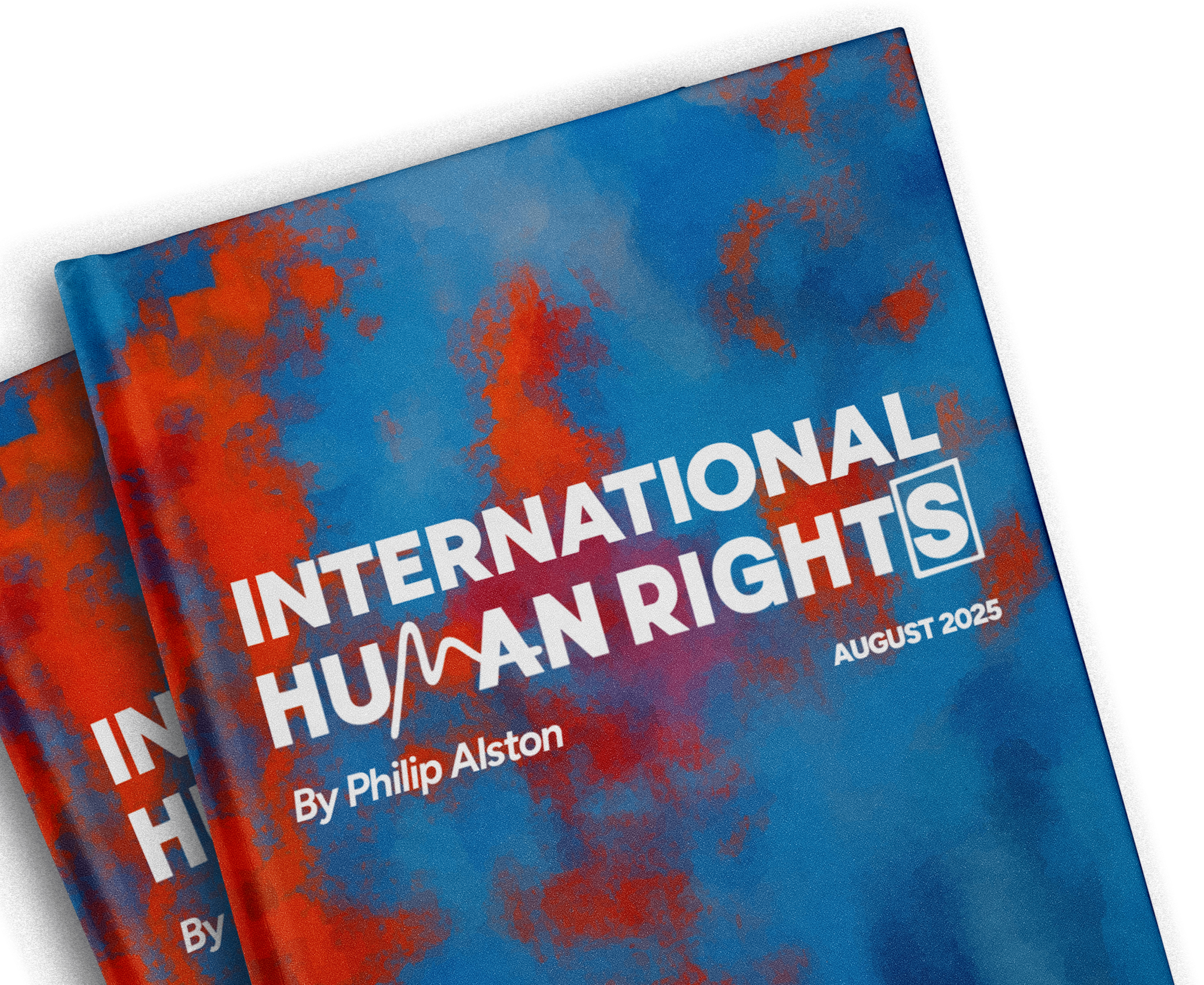
A free and open textbook for today’s human rights challenges.
Written by Philip Alston, this publication takes a critical look at international human rights law and is designed for students, educators, and global practitioners.
Grounded in law.
Shaped by today’s realities.
This book examines the world of contemporary human rights, including legal norms, political contexts and moral ideals. It acknowledges the regime’s strengths and weaknesses, and focuses on today’s principal challenges. These include radical inequality, resurgent racism, the rise of anti-gender ideology, the implications of new technologies for fact-finding and many other parts of the regime, the continuing marginality of economic, social and cultural rights, climate change, and the evermore central role of the private sector.
The boundaries of the subject have steadily expanded as the post-World War II regime has become an indelible part of the legal, political and moral landscape. Given the breadth and complexity of the regime, the book takes an interdisciplinary and critical approach.
This edition is a successor to previous volumes:
International Human Rights in Context (1996, 2000 and 2008, all co-authored with Henry Steiner and in 2008 also with Ryan Goodman),
International Human Rights: Text and Materials (2013, co-authored with Ryan Goodman).
A complete, critical education in international human rights law.
Explore 18 chapters across 6 sections, covering:
-

Foundational principles and legal frameworks
Explore the historical roots, philosophical foundations, and legal basis of international human rights. This section introduces key concepts, treaties, and institutions that define the field today.
-

Civil, political, social, and economic rights
Understand the full spectrum of rights protected under international law. From free speech to healthcare, this section examines how these rights are defined, debated, and enforced across contexts.
-

Universalism, relativism, and ethical dilemmas
Dive into the global debates that shape human rights discourse. Explore tensions between cultural diversity and universal norms, and the ethical challenges that arise in applying rights across borders.
-

Global and regional enforcement mechanisms
Learn how human rights are upheld—or challenged—through global and regional institutions. This section covers the UN system, regional courts, treaty bodies, and other tools of accountability.
-

States, non-state actors, and accountability
Examine the complex web of responsibility in the human rights landscape. From governments to corporations and NGOs, this section explores how actors are held accountable for rights violations.
-

Current crises—from armed conflict to climate justice
Analyze how international human rights respond to today's most pressing challenges. Topics include war, displacement, racial injustice, climate change, and the global backlash against gender and democracy.
Notable reviews.

Teaching human rights today.
A new online open-access human rights textbook is an opportunity to model true accessibility and to incorporate updated approaches in this complex field.
Photo Credit: AnnaStills / iStock
About the author, Philip Alston.
Professor of Law, New York University School of Law
Faculty Director, Center for Human Rights & Global Justice at NYU Law
Philip teaches international law, human rights law, economic and social rights, and strategic human rights litigation. As both a scholar and practitioner, he focuses in his work on the human rights dimensions of issues such as neoliberal economic policies, climate change, artificial intelligence, and poverty elimination. From 2014 to 2020, he was UN Human Rights Council special rapporteur on extreme poverty and human rights. Before that, he was UN special rapporteur on extrajudicial executions, monitoring unlawful killings around the world (2004 to 2010).


